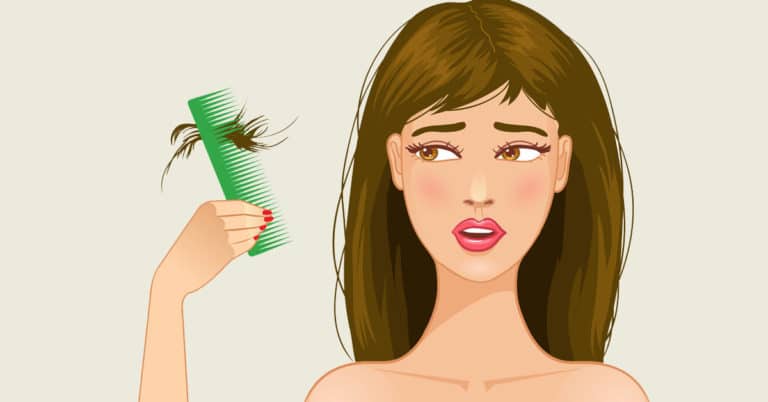

Sometimes you know you’re overstressed, and you realize that you have to take time off work or retreat from your social obligations for a while.
However, it’s also common to be constantly operating at a low level of burnout, suffering from an overstressed mind and body without ever even knowing it.
And in such cases, your immune system function is impaired and you’re more likely to struggle with emotional difficulties.
Here are nine warning signs that you’re overstressed and need to practice more self-care.
(And if you think you are in fact overstressed, have a look at this article with Tips For Beating Low Mood & Depression + Free Printable PDF)
 1. You’re In Pain
1. You’re In PainSometimes, you might not realize how stressed you are until it starts to take its toll on your body.
You can experience everything from chronic muscle aches to heart palpitations, stomach ulcers, and digestive upsets.
When your body hurts, pay attention—stress management may be the first step towards feeling physically better.
Whether you’re sleeping too much because you feel exhausted or you’re finding that it’s hard to fall asleep, remember that stress is a very common cause.
You can improve your sleep by meditating, exercising, and eating a healthy diet, but you should also look at your everyday routines to see if you’re overtaxing yourself.
Consider what you’ve been eating lately, why you’ve been eating it, and what food means to you.
Are you either forgetting to eat (and losing weight) or eating too much? When your appetite changes, this is an indication that something emotional has been changing for you as well.
If it seems like there’s nothing you can do to shift your mind away from work concerns, financial worries, or relationship issues, this is a major warning sign that stress is controlling your life right now.
You won’t actually be able to find a solution to your problems until you’re able to detach from them and think more objectively, so think about how you can stop stress from suffocating you.
For example, if work is your major concern, setting a daily cut-off time for email checks can be very useful.
Going for a leisurely walk, sitting quietly, or just considering your own thoughts should be relaxing and rejuvenating activities.
However, if you delay these types of activities at all costs and make sure that you’re constantly occupied, you’re probably chronically stressed.
And doing your best to avoid engaging with your underlying worries.
Reduced tolerance for other people (even those you truly love) is often one of the first signs that stress is slowly starting to get the best of you. We often displace our anger and anxiety, taking it out on those nearby as a way of ensuring it gets expressed in some way (no matter how unhealthy).

So if you’re snapping at people or feeling annoyed when in their company, consider that you might need to ask for help coping with stress.
Stress hormones can cause dramatic swings from happiness to rage, or from misery to joy. This rollercoaster of feelings is exhausting in itself. It can often be a direct result of bottling up intense emotions rather than taking proper care of yourself.
If there is no other obvious explanation for your mood swings (such as an unfortunate episode of premenstrual tension), ask yourself what might be stressing you—and find someone to talk to about how you’re feeling.
It’s much better to deliberately explore your emotions than it is to wait for them to explode unbiddenly.
(Find out how to improve mood and energy with these instant mood boosters! Click here now)
There are many medical causes of hair loss, but research shows that undergoing extreme stress can change your physiological functions to the extent that too many of your hairs go into the “resting phase” at once. You may, therefore, lose up to double the usual amount of hair around 3-4 months after the onset of stress.
If your doctor can’t find a purely physical cause for your unexpected hair loss, it could be that you’ve been overstressed for ages without ever really acknowledging it.
Finally, many people don’t think to consider the connection between stress and a decrease in libido—or simply don’t want to think about how this is impacting their sex lives. However, it makes perfect sense that being overstressed leads to exhaustion, a reduction in physical stamina, and hormonal changes that make intimacy less appealing.
Talking candidly with your partner is one of the best things you can do here, as open communication allows you to generate solutions and maintain empathy.
If the above signs sound familiar, it’s highly likely that you have become overstressed without even realizing it. Try to deliberately devote at least an hour a week to deliberating reducing stress levels, whether through creative pursuits (e.g. journaling), hobbies, therapy, or meditation.
